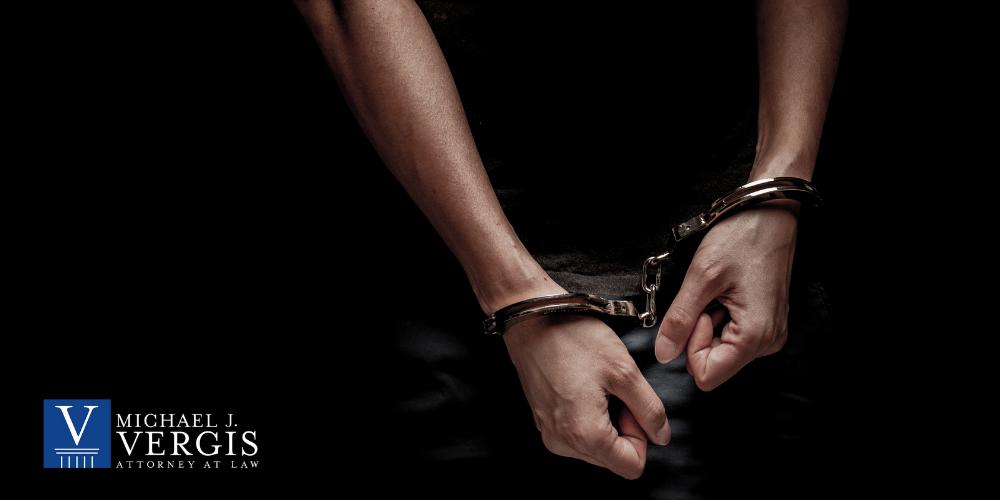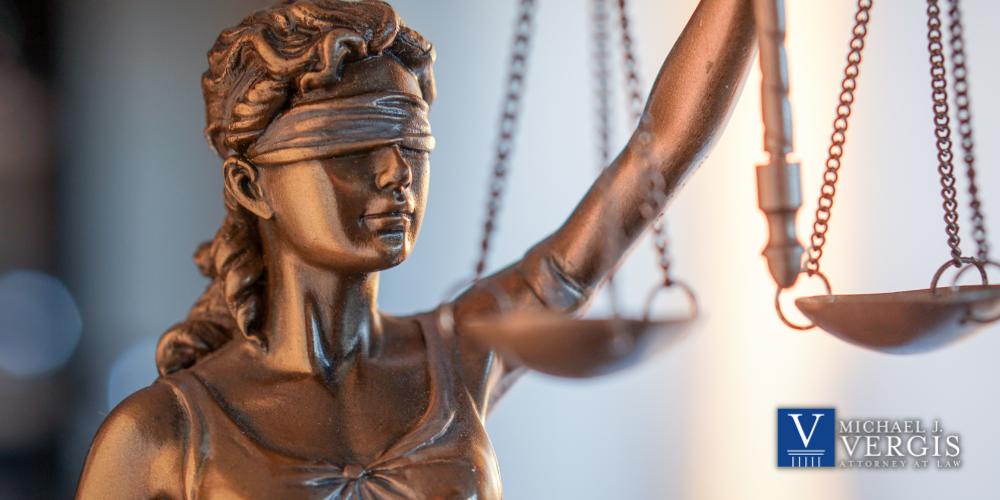False imprisonment is a serious offense that involves the unlawful confinement or restraint of an individual against their will. In Louisiana, false imprisonment is considered a criminal offense, and those found guilty may face significant legal repercussions. Below, our criminal defense attorneys will provide valuable insights into the nature of false imprisonment and its legal implications in Louisiana.
If you’re seeking legal representation for a false imprisonment case in Bossier City, Shreveport, or the surrounding Northwest Louisiana areas, look no further than the Law Offices of Michael J. Vergis. With over 25 years of experience representing clients against criminal charges, Michael J. Vergis has extensive knowledge of the Louisiana legal system. To learn more about your legal rights regarding false imprisonment claims, contact Bossier City criminal defense attorney Michael J. Vergis at (318) 698-3724 today.
LA Revised Statute 14:46
False imprisonment is defined under Louisiana Revised Statute 14:46 as the intentional confinement or restraint of another person without legal authority or the person’s consent. This can include any form of detention or restraint of movement and does not necessarily require physical barriers; intimidation or threats of physical force can also constitute false imprisonment if they effectively restrict a person’s freedom to move.

How Do You Get Charged With False Imprisonment?
False imprisonment is often used interchangeably with kidnapping, but while the two criminal offenses are similar, several key distinctions separate the two. False imprisonment involves confining a person without their consent in a specific location without moving them and is usually considered a less severe offense, often treated as a misdemeanor. Kidnapping, on the other hand, involves abducting and transporting the victim to a different location, making it a more serious crime, typically classified as a felony with more severe legal consequences.
The intent of false imprisonment is mainly to restrict movement within a confined space, whereas kidnapping often includes additional criminal intents like ransom or facilitating other felonies. Kidnapping also poses higher risks to the victim due to the potential for greater physical and psychological harm.
To be charged with false imprisonment, several critical elements must be present.
- Willful Detention: The person accused of false imprisonment must have intentionally confined or restrained the victim. This means there was a deliberate act to restrict the victim’s freedom of movement. It doesn’t necessarily require physical barriers; it could also be through force, threats, or other forms of coercion.
- Without Legal Authority: The confinement or restraint must occur without legal right or justification. This distinguishes false imprisonment from legal forms of detention, such as an arrest by a police officer with proper authority and a warrant or detention under certain legal circumstances.
- Lack of Consent: The victim must not have consented to the confinement. This consent must be freely given and not obtained through coercion, duress, or deception. If the victim consents to the confinement, it generally cannot be considered false imprisonment.
False Imprisonment vs. False Arrest
False imprisonment is the unlawful imprisonment or restraint of an individual’s freedom of movement by another person without legal authority or the individual’s consent. This can occur in various settings, not necessarily involving police officers, and can be committed by private individuals.
False arrest, however, is a specific type of false imprisonment that occurs when someone, typically a police officer, wrongfully detains an individual under the pretense of legal authority. This implies an illegitimate or unauthorized arrest, lacking proper legal justification like probable cause or a warrant.
The primary difference between a false imprisonment and false arrest claim lies within the context and the perpetrator: false imprisonment can be perpetrated by anyone in any situation restricting freedom, while false arrest specifically involves illegal detention under the guise of legal authority. Both can lead to civil actions for damages, but their legal implications differ based on the circumstances of the confinement.
Examples of False Imprisonment
For an individual to be falsely imprisoned, they must be held against their will. Below are some false imprisonment examples and the different environments where it can occur.
Domestic Environment
- An individual locks their spouse or partner in a room against their will during an argument.
- A parent forcefully prevents their adult child from leaving the house, not allowing them to go to work or meet friends.
Workplace Environment
- A manager locks the office door, preventing an employee from leaving until they finish a task or as a punishment.
- An employer restricts an employee’s movement within the workplace, using threats of termination or other penalties if they leave a certain area.
Law Enforcement Environment
- A police officer detains a person without a warrant or probable cause, keeping them confined in a specific area or a police vehicle.
- Law enforcement officers confine a person to their home without legal authority or justification.
Public and Commercial Spaces
- A store employee or security personnel detains a customer against their will, accusing them of shoplifting without evidence and preventing them from leaving.
- A security guard at a public event or facility blocks exits and prevents individuals from leaving without legal grounds or emergency reasons.
Educational Institutions
- A teacher or school administrator locks a student in a classroom or a school facility as a form of discipline without a legitimate safety concern.
- College staff prevent a student from leaving a dormitory or campus building under false accusations or without a valid reason.
Healthcare Settings
- Medical staff prevent a patient from leaving the hospital despite the patient’s wish to leave and without a legal hold.
- Nursing home or assisted living facility caregivers who confine residents to their rooms or specific areas without medical necessity or legal authority.
These examples showcase how false imprisonment can occur in various settings. It’s important to note that the legality of each situation depends on the specific circumstances, including the presence or absence of consent, legal authority, and the intent behind the confinement.
Is False Imprisonment a Felony?
False imprisonment is often considered a misdemeanor offense with short jail sentences and minimal fines. However, if the false imprisonment crime is committed with a dangerous weapon, the offender can be charged with a felony offense and face up to ten years in prison, with or without hard labor. False imprisonment with a dangerous weapon is defined under Louisiana Revised Statute 14:46:1.

Penalties for False Imprisonment in Louisiana
According to Louisiana R.S. 14:46, a person guilty of false imprisonment can spend up to six months in jail and/or pay fines totaling no more than $200. However, the circumstances surrounding the crime and the offender’s criminal history can affect their punishment.
It’s important to note that false imprisonment can fall under both criminal law and tort law. According to tort law, false imprisonment is considered an intentional tort. In these cases, the person allegedly falsely imprisoned can seek damages for physical or emotional harm. When this occurs, it’s important to have an experienced personal injury lawyer representing you against the charges. To learn more about criminal and civil liability in a false imprisonment claim, contact Bossier City personal injury attorney Michael J. Vergis today.
How Does the Prosecution Prove False Imprisonment?
To prove false imprisonment, the prosecution must establish that the accused intentionally confined or restrained the victim without legal authority and the victim’s consent. Key aspects of the prosecution’s case include demonstrating the accused’s purposeful restriction of the victim’s movement through physical force or coercion. The prosecution must also show the absence of legal justification for such confinement, differentiating it from lawful detentions.
Proving the victim’s lack of voluntary consent, free from coercion or deception, is crucial. The role of intent and knowledge is also important; the accused must have intended to restrict movement and have been aware of the confinement’s circumstances. The validity of any consent is critically examined, as consent obtained under false pretenses may invalidate the charge. The burden is on the prosecution to prove these elements beyond a reasonable doubt for a successful conviction.

Why You Need an Experienced Criminal Defense Attorney for Your False Imprisonment Charges
If you’re facing false imprisonment charges, you need an experienced criminal defense attorney representing you. With a deep understanding of criminal law, this knowledge is vital to your defense strategy.
Bossier City criminal defense attorney Michael J. Vergis is proficient in handling and challenging evidence, negotiating plea bargains, and ensuring your rights are protected throughout the legal process. As your attorney, he can provide essential legal advice, guide you through the court system, and effectively represent you in trial, if necessary. This expertise is crucial in mitigating the potentially severe consequences of a false imprisonment conviction, like fines, imprisonment, and a criminal record.
Defenses To False Imprisonment
There are several defense strategies that your criminal defense attorney may use when representing you against a false imprisonment claim. When you choose Michael J. Vergis as your attorney, he will evaluate the circumstances of the false imprisonment claims to build a strong defense against the charges. Based on these circumstances specific to your false imprisonment claim, attorney Michael J. Vergis may choose from one of the following defense strategies:
- Consent: If the person who was confined or restrained consented to the situation, it can be a valid defense. This consent must be free from coercion, duress, or deceit. Demonstrating that the alleged victim voluntarily agreed to the confinement negates the claim of false imprisonment.
- Legal Authority: If the person accused of false imprisonment had legal authority for the confinement, such as in the case of lawful arrests by police officers, this can be a defense. It needs to be shown that the confinement was within the bounds of their legal powers.
- Mistake of Fact: If the person accused of false imprisonment believed, under reasonable circumstances, that their actions were necessary or legally justified, this can be used as a defense. For example, mistakenly believing one has the legal authority to detain someone could fall under this category.

Charged With False Imprisonment? Call Bossier City Criminal Defense Attorney Michael J. Vergis For a Free Consultation
False imprisonment is a serious legal matter that is both a crime and tort, or civil wrong. Since it can go either way, it’s important to work with an attorney with experience representing clients in both criminal and civil liability cases.
If you are facing false imprisonment charges, it’s essential to consult with Bossier City attorney Michael J. Vergis, who can provide guidance and build a strong defense against the charges.
To schedule a free consultation at The Law Offices of Michael J. Vergis, call (318) 698-3724 or contact us online today.



